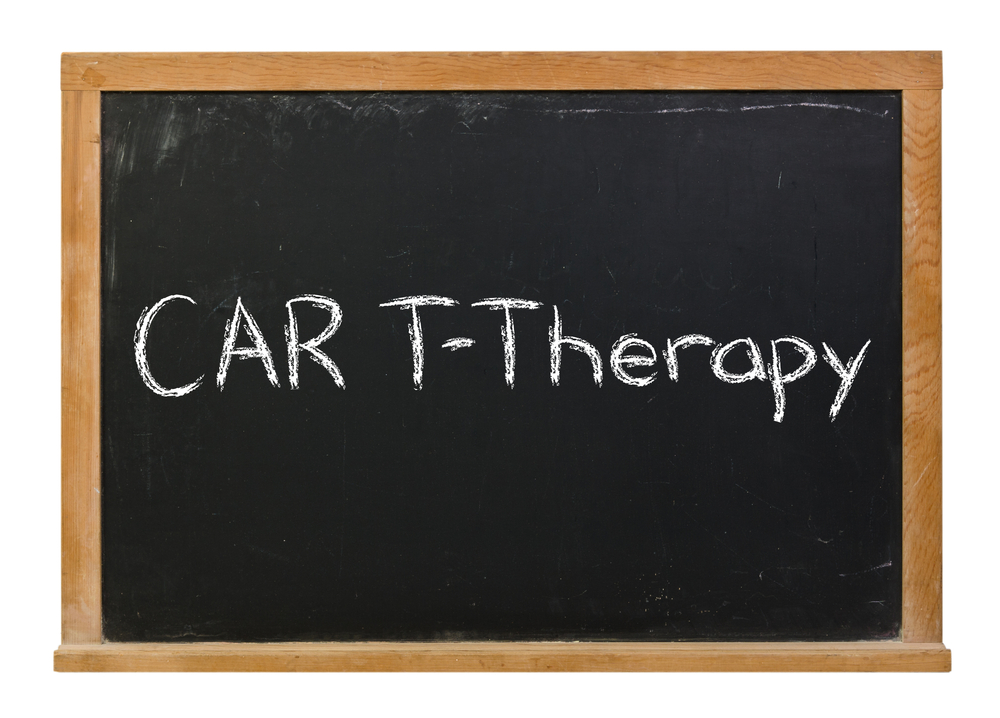CT103A CAR T-cell Therapy Leads to Strong Anti-cancer Responses in Relapsed or Refractory Multiple Myeloma Patients, Trial Shows

CT103A, a fully-human anti-B-cell mature antigen (BCMA) CAR T-cell therapy, leads to strong anti-cancer responses in patients with relapsed or refractory multiple myeloma, including those who relapsed after receiving prior CAR T-cell therapy, data from a trial shows.
The findings were presented in a poster, titled “Clinical responses and pharmacokinetics of fully human BCMA targeting CAR T-cell therapy in relapsed/refractory multiple myeloma,” at the 2019 American Society of Clinical Oncology Annual Meeting in Chicago, and during an oral presentation at the 24th Congress of the European Hematology Association in Amsterdam.
Chimeric antigen receptor T-cell therapy, more commonly known as CAR-T cell therapy, is a type of immunotherapy in which a patient’s T-cells — immune cells with anti-cancer activity — are collected and re-engineered in the lab to recognize and eliminate cancer cells. The treated cells are then inserted back into the patient’s body to fight the tumor.
CT103A, co-developed by Innovent Biologics and Nanjing IASO Biotherapeutics, contains genetically-modified human T-cells that specifically recognize and eliminate malignant cancer cells with the BCMA protein, while leaving healthy cells unharmed. These modified T-cells have been specifically created for the treatment of multiple myeloma patients who failed prior treatments.
Unlike other types of CAR T-cell therapies, CT103A contains a fully-human antibody fragment that reduces the risks of immune system overactivation in patients who relapse after the initial treatment and require a second infusion. For this reason, CT103A may potentially be the CAR T-cell therapy for tough-to-treat patients.
An open-label, single-arm trial (ChiCTR1800018137) is currently testing the safety, tolerability, and efficacy of CT103A for the treatment of relapsed or refractory myeloma patients at the Tongji Hospital of Tongji Medical College, Huazhong University of Science and Technology, in China.
The trial’s primary objective is to determine treatment safety and tolerability. Secondary endpoints include evaluation of anti-myeloma activity, persistence of modified T-cells in the body, and pharmacokinetic properties (pharmacokinetics is the study of how a drug is absorbed, distributed, metabolized, and eliminated from the body).
At the time of data cut-off (May 22, 2019), 12 patients — including four whose disease relapsed after being treated with a murine (mouse-based) anti-BCMA CAR T-cell therapy — received an infusion of CT103A at one of three doses (one million, three million, or six million cells per kilogram of body weight), after receiving a conditioning chemotherapy regimen of cyclophosphamide plus fludarabine.
According to data presented at both conferences, all patients responded favorably to treatment, which was reflected by an objective response rate of 100%, with 64% of the patients achieving a complete response (complete tumor eradication) and 36% achieving a very good partial response (nearly complete tumor eradication).
These efficacy results were accompanied by a solid persistence and expansion of modified T-cells in the body of patients after infusion.
All patients participating in the study developed cytokine release syndrome (CRS), a systemic inflammatory response that can be triggered by certain drugs, at different levels of severity. The onset of CRS occurred within two to five days and resolved within 14 days. Among patients receiving the lowest doses of CT103A, CRS was mostly grade 1 (mild) and 2 (moderate), and was easily manageable with tocilizumab and steroids.
Relapsed or refractory multiple myeloma “is associated with a poor prognosis,” Chunrui Li, from the Tongji Hospital of Tongji Medical College, said in a press release. “Many patients who receive CAR-T treatments have had disease recurrence, and with a non-human scFv [single-chain fragment variable], re-treatment may not be an option due to immunogenicity [immune reaction].”
“With a fully-human BCMA scFv, CT103A provides an effective option for these patients,” he said. “This data suggests they should not be excluded from the benefit of future trials.”






